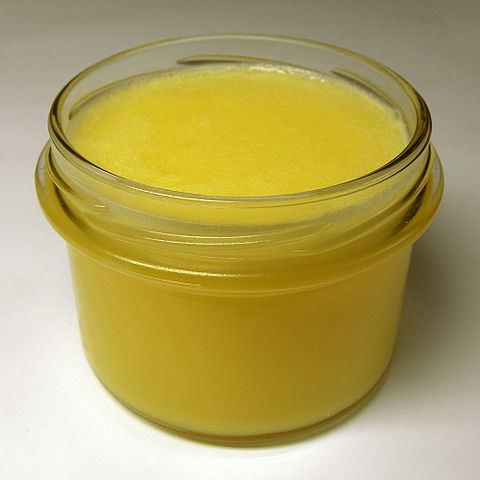Ghee vs Butter
Ghee and butter are both milk products commonly used in Asian cuisine, particularly in India, Pakistan, and Bangladesh. While both are produced from milk, ghee is made from cow milk, while butter is made from cow milk as well as sheep, goats, and yaks. In this article, we will explore the differences between ghee and butter.
What is Ghee?
Ghee is known by various names worldwide, such as clarified butter, butter oil, drawn butter, or anhydrous milk fat (AMF). It is called ghee in Asian countries, clarified butter or AMF in western countries, and samnah in the Middle East. Ghee used in India has unique properties not found in other varieties. Ghee is an excellent cooking medium with a high smoke point, making it ideal for deep frying, sautéing, and baking. Additionally, a small amount of ghee can enhance the flavor and aroma of a recipe.
Ghee does not have the milk solids found in butter, so it can be heated to high temperatures without affecting the taste of the dish. When making ghee, the casein and lactose found in butter are removed, making it easier to digest and suitable for people with allergies to these milk components. Ghee also has a long shelf life, lasting up to 2-3 months without refrigeration or even years if stored in the fridge. Aged ghee has healing properties and can be quite expensive, similar to aged wine.
What is Butter?
Butter is made by churning fresh or fermented milk or cream to separate the butterfat from the buttermilk. It contains butterfat, milk, water, and proteins. Butter is often used as a spread and in cooking for baking, sautéing, and pan frying. It has a milky flavor but can produce a bad odor due to the milk solids that can burn at the bottom of the pan. Butter has a limited shelf life and is not ideal for making recipes.
Key Takeaways
- Ghee and butter are both milk products, but ghee is made from cow milk while butter is made from cow, sheep, goat, or yak milk.
- Ghee is an excellent cooking medium with a high smoke point, making it ideal for frying and sautéing, while butter is not suitable for high-temperature cooking due to its milk solids.
- Ghee has a longer shelf life and is easier to digest than butter, making it a better option for people with allergies to milk components.
